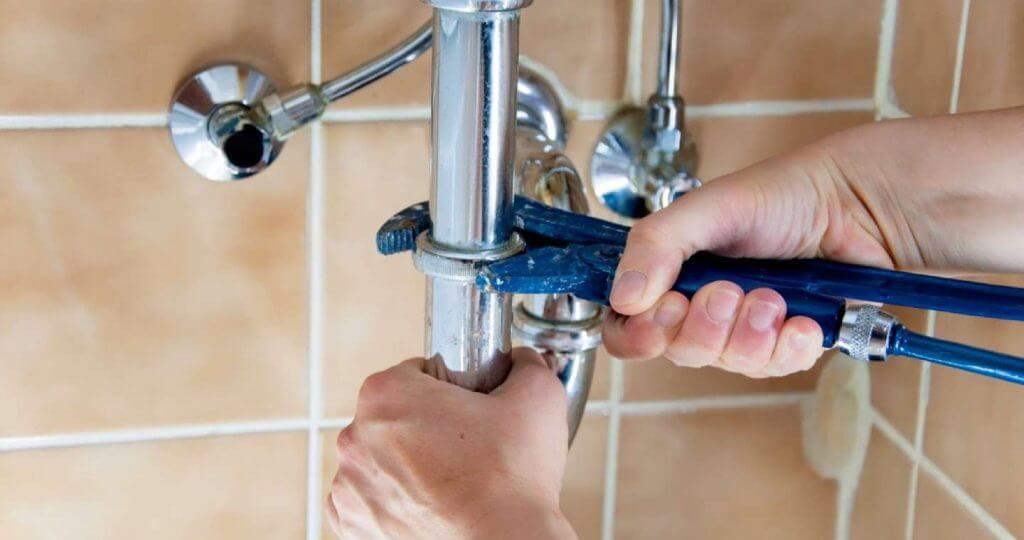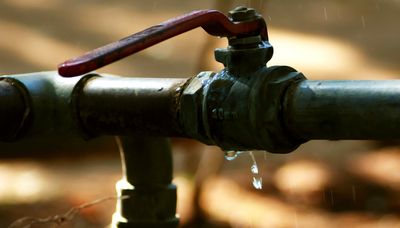This great article listed below about How to Find and Prevent Water Leaks in Your Home is amazingly interesting. You should keep reading.

"Beware of little costs. A small leakage will sink a wonderful ship." - Benjamin Franklin.
He couldn't have actually been a lot more right since water leakages in our homes lead to a waste of sources, boosting our water expenses. Although this boost might appear negligible at first, it can bring about considerable expenses that can damage your bank. Apart from a rise in bills, water leakages also trigger undesirable natural development, structural damage, as well as even electric dangers.
Identifying if you have a water leak isn't constantly simple due to being unable to see most of the pipework in your house. Nevertheless, If you have had an increase in your water costs lately, observed water stains on ceilings and walls, scented lousy smell, etc. You might intend to consider asking for plumbing solutions to get it took a look at.
There are several reasons for water leaks, and also we have actually assembled the typical reasons listed below. Inspect to see if you have had related concerns in your house recently.
Obstructed drains pipes
Food bits, dirt, and also grease can create stopped up drains pipes as well as block the passage of water in and out of your sink. If undealt with, enhanced pressure within the seamless gutters can end and also cause an overflow up breaking or rupturing pipelines. To prevent stopped up drains in your home, we recommend you to avoid pouring fragments away and normal cleansing of sinks.
High water pressure
You observed your home water stress is more than typical however then, why should you care? It runs out your control.
It would be best if you cared because your average water stress ought to be 60 Psi (per square inch) and also although your home's plumbing system is created to hold up against 80 Psi. An increase in water pressure can place a stress on your house pipes and lead to splits, or even worse, burst pipelines. If you ever before observe that your home water stress is more than normal, contact an expert concerning controling it.
Rust
As your pipework ages, it obtains weaker and also more susceptible to rust after the frequent passage of water with them, which can eat away at pipes and also cause cracks. A noticeable indicator of deterioration in your home plumbing system is discoloration and also although this may be tough to identify as a result of a lot of pipes hidden away. We recommend doing a frequent checkup every couple of years and change pipelines once they are old to guarantee an audio plumbing system
Deteriorated pipeline joints
Pipe joints are the components of our plumbing system where the pipelines link. It is vital to note that even though pipelines are created to stand up to pressure and also last for a while, they weren't developed to last forever; consequently, they would weaken over time. An usual sign of harmed pipeline joints is extreme sound from faucets.
Busted seals
One more cause of water leaks in residences is broken seals of house devices that utilize water, e.g., a dishwashing machine. When such home appliances are set up, seals are set up around water adapters for very easy flow of water with the device. A damaged seal can create leakage of water when in use.
With little or no expertise of plumbing, recognizing your residence's plumbing system sufficient to repair some of these concerns (without repercussion) can be a problem. Connect with plumbing professionals in Pittsburgh, Providence, Rochester, and also environ today, as well as they'll make those problems disappear.
He could not have been a lot more right because water leaks in our residences result in a waste of resources, enhancing our water bills. If you have had a rise in your water expenses lately, saw water spots on ceilings and wall surfaces, scented lousy smell, etc. An increase in water pressure can place a strain on your house pipelines and lead to fractures, or even worse, burst pipelines. Another cause of water leakages in residences is broken seals of house devices that make use of water, e.g., a dish washer. When such appliances are installed, seals are set up around water ports for simple flow of water via the equipment.
5 TIPS IN DETECTING A WATER LEAK IN YOUR HOUSE
Water leaks can be hard to find in your home, yet they can be so common. We rely on water every day in our home, which is why a leak can cause big problems. By detecting them early, you can save money and further damage, getting the problem fixed as soon as possible. Here are 5 tips to help you detect a water leak in your home, so you can contact a plumber straight away and get the issue sorted.
Check your water meter
Many people underestimate the value of the water meter in their home. It can be one of the best ways to tell if you have a leak early on, so you can get on top of it before issues start arising. Start by turning off all the water in your home: taps, washing machine, dishwasher, etc. Now take a look at the meter – if it’s still changing with everything turned off, it’s likely you have a fast-flowing leak that you need to get on top of straight away. If nothing changes, then leave your meter for an hour or two and come back to it. Did it change in this time? It’s likely you have a slower leak, which isn’t as urgent but still handy to get fixed so it doesn’t become a bigger problem.
Keep an eye on your bill
Another good way to detect a leak in your home is by keeping an eye on your water bill. It helps if you have a past bill from the same period of time. You can compare like for like and determine whether your water usage has increased significantly. If it has, there may be a leak in your system that you haven’t picked up before. A professional plumber can check through all of your pipes and determine where it is coming from.
Look for damage
If you have a leak inside your home, you will notice damage over time. Take a look at your showers and bathtubs and note whether any of the tiles surrounding the area seem to be discoloured or damaged in any way. There may be water stains, mould or peeling material that has resulted from a build up of moisture over time. Make sure you take a look under sinks at the back of cupboards that don’t get accessed regularly. This is where damage can go unnoticed and build up over periods of time.

As a reader on Common Causes of Water Leaks in the Home, I thought sharing that chunk was a good idea. Do you know about someone else who is involved in the niche? Please feel free to share it. Thank you for your time. Kindly stop by our website back soon.
Plumbing crisis? Reach out!